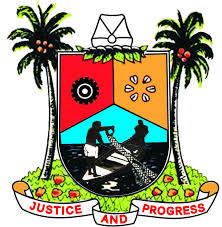By Prince Debo Luwaji
The most significant interpretation of the recent landmark judgement of the Supreme Court which affirmed the autonomy of Local Governments in Nigeria will have them receive their fiscal allocations directly from the Federal Government.
The implication of this is that our state governors have again been relieved of a huge source of cheap funds which had remained at their behest hitherto. They must now put on their thinking caps on how to substantially upgrade their IGR as a means of complementing the often inadequate, debt-depleted allocations from the centre. To achieve such goals, I recommend that the tested and highly successful Lagos template for tax administration be understudied.
It is noteworthy that the state continues to introduce online platforms for residents and businesses to easily access their bills and make payments for levies and other govt levies in a convenient and efficient manner. Users of rhese platforms can access information about their payment history, generate receipts and generally track the status of their transactions.
Significantly, the state recently introduced the Lagos State Revenue Portal (LRP) – a digital platform that caters for the exclusive use of payers of charges, levies and fines. This is in addition to the existing e-Tax – a counterparty platform that caters for Taxes only.
The technical and extensive nature of a dynamic tax collection systems, that will rein in adequate returns without hurting the populace, is beyond what civil service
bureaucracy with its notorious tardiness can tackle alone. What is at stake is much higher, requiring outsourcing of tasks in meeting set revenue targets. This makes engaging competent professional consultants imperative. Here, focus must be on chosing the right organisations with proven capacity, not another job for the boys or selections driven by political considerations.
Do many people really know, despite this being in public domain, that Lagos State engages various consultants within its tax structure whose retentions are anchored solely on their abilities to help the state meet and surpass the Governor’s very ambitious and ever shifting revenue targets?
For instance, in implementing the state’s taxation policies, the entire Lagos State is divided into seven regions, namely Ikeja 1, Ikeja 2, Badagry, Ikorodu, Lagos 1, Lagos 2 and Epe divisions. Each of these regions is under a different consultant, charged with performance-driven, round-the-clock tasks of enumerating and registering taxable individual and owners of businesses as well as electronic collections of taxes.
The fact that these consultants compulsorily utilise customised solutions comprising application software and associated electronic gadgets to conduct their duties guarantee efficiency while eliminating sharp practices.
Part of the advantage is that the application software and electronic gadgets support instant issuance of the state government’s Automated Revenue Receipt (ARR) which can be electronically verified. Payers are happy about a system that is not cumbersome and avail them of their receipts instantaneously!
Given the majorly tech-driven tax system, the leading Consultants like Alpha-Beta Consulting LLP working in consert with LIRS has the state-wide roles of training all those involved in the revenue generation value chain, including all the banks, private sector, organs within the Education sector, Market groups, Transport etc on how to seemlessly access the Lagos Revenue Portal as well as generating feedbacks for continous review.
Speaking at a recent forum in the course of his several interfacing with MDAs and key stakeholders, Hon Ogungbo Abdul-Kabir, the SA to the Governor on Tax and revenue revealed that rhe LASG tax policy is too structured to fail. ” it is programmed to deliver maximally, with virtually all sectors covered and periodically reviewed, with specific roles assigned to entities on the basis of competence, track record and delivery.. It is not a tea party. The governor himself sits at the head of the different layers of reporting, intensely monitoring the extent to which these multi-level units are meeting set targets, as this can severely impact the state’s developmental, people-oriented projects”
The LASG model surely offers even the Federal as well as our various state governments the right example of how to streamline revenue collection processes, promote convenience, transparency , cost effectiveness and improve overall service delivery in that vital sector.
Prince Debo Luwaji is a Public Affairs Analyst and Entrepreneur














